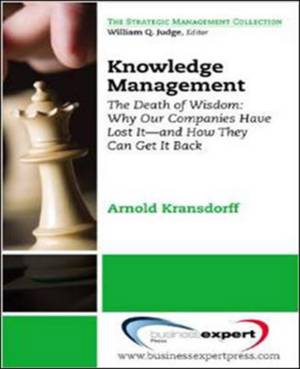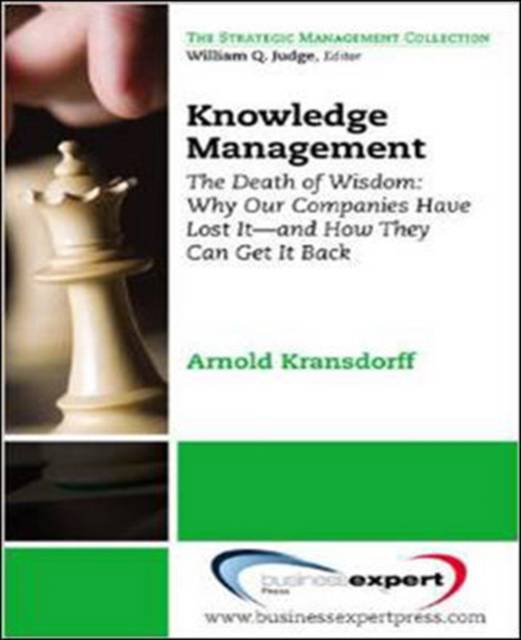
- Afhalen na 1 uur in een winkel met voorraad
- Gratis thuislevering in België vanaf € 30
- Ruim aanbod met 7 miljoen producten
- Afhalen na 1 uur in een winkel met voorraad
- Gratis thuislevering in België vanaf € 30
- Ruim aanbod met 7 miljoen producten
Zoeken
Knowledge Management
The Death of Wisdom: Why Our Companies Have Lost It-and How They Can Get It Back, Third Edition
Arnold Kransdorff
Paperback | Engels
€ 30,95
+ 61 punten
Uitvoering
Omschrijving
This book is about an unintended-and unnoticed-consequence that is needlessly costing commerce and industry an unimaginable amount of money. It was in the early 1980s that someone smart thought that the flexible labor market would allow employers to quickly adapt their workforce to the new industrial technology-led revolution. It did, but the trouble is that nobody thought of the downside consequences- short jobs tenure and the continual loss of the organizations' unique, hard-won and expensively acquired knowledge and experience. Inside, you'll learn how employers can continue to take advantage of the flexible labor market while holding on to their special knowledge and experience. It's a way of recovering lost continuity, allowing rolling generations of employees to learn more effectively from tried-and-tested experience and thus improve their decision making. Called experiential learning that has been adapted to the modern workplace, it's a way of helping to banish all those repeated mistakes, re-invented wheels and other unlearned lessons that litter modern industry and commerce.
Specificaties
Betrokkenen
- Auteur(s):
- Uitgeverij:
Inhoud
- Aantal bladzijden:
- 160
- Taal:
- Engels
Eigenschappen
- Productcode (EAN):
- 9781606495421
- Verschijningsdatum:
- 24/09/2012
- Uitvoering:
- Paperback
- Formaat:
- Trade paperback (VS)
- Afmetingen:
- 152 mm x 229 mm
- Gewicht:
- 222 g

Alleen bij Standaard Boekhandel
+ 61 punten op je klantenkaart van Standaard Boekhandel
Beoordelingen
We publiceren alleen reviews die voldoen aan de voorwaarden voor reviews. Bekijk onze voorwaarden voor reviews.







